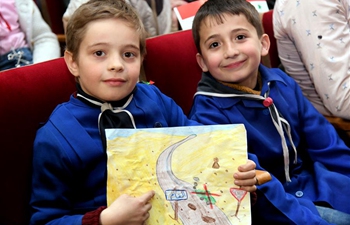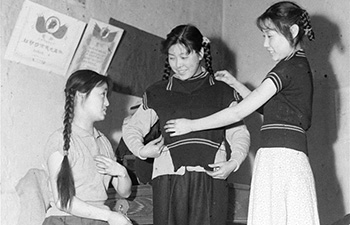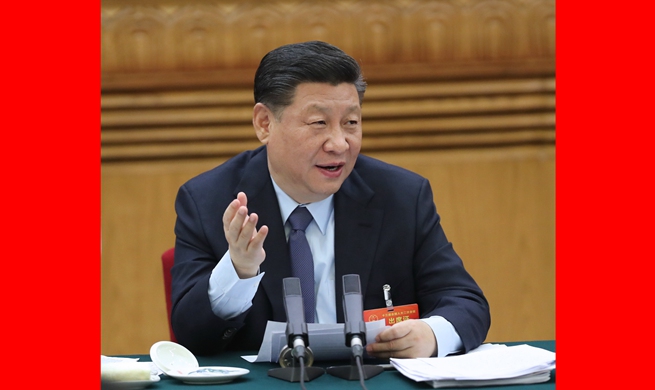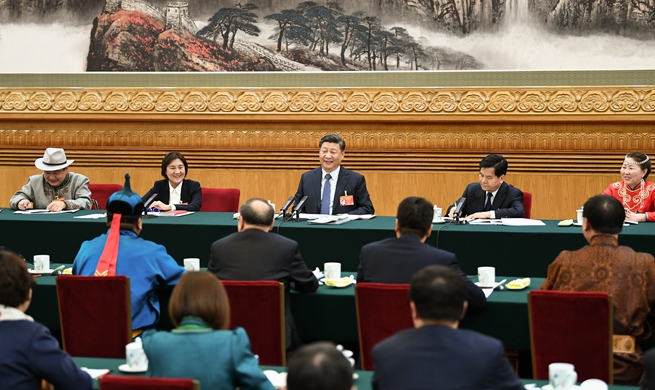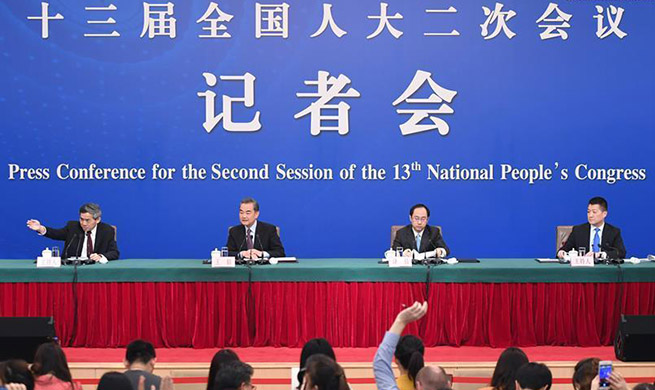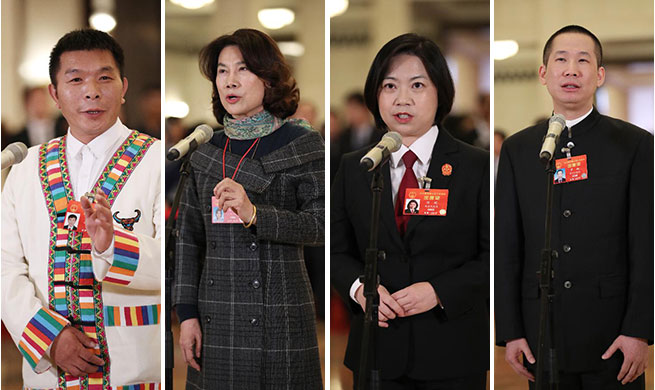BEIJING, March 8 (Xinhua) -- When grape farmer Wei Yucheng married off his two daughters without asking for any betrothal gift, his friends' jaws almost dropped.
Wei, 58, owns a 10,000-square-meter vineyard in his hometown of Shahu village in northwest China's Ningxia Hui Autonomous Region. He and his wife grow grapes and raise dozens of sheep.
It is a common practice for the bride's parents to ask the groom's family for "caili," or betrothal gifts before the couple tie the knot. The gifts often consist of cash, houses, cars or other valuables.
"Many villagers said I should at least get the money that I paid for my girls' education back. They laughed at me, saying that girls would eventually marry and care for their husbands' family and that I'm stupid to be raising kids for someone else," Wei said.
His three daughters all attended college, and Wei is not concerned with getting his investment back.
"Their lives are getting better and I don't need the money. I only expect them to live a happy life," Wei said.
FAREWELL TO PRICEY "CAILI"
Wei is the new type of father-in-law that rural parts of China want to promote. Rectifying the practice of exorbitant prices for betrothal is also listed as a task in the policy document for rural and countryside development released by the central authorities in January.
In some rural areas of China, caili -- the bride pricing, can be nerve-wracking. The groom's parents usually give riches to their in-laws-to-be, either to secure a happy marriage or to display the family's wealth to others.
As rural people become richer, expectations for betrothal money increase each year, imposing a huge financial burden on the groom's family.
As the saying goes, "ten thousand purple, pink and green" is the best. The colors mean that the bride's family shall receive 10,000 five-yuan notes (purple), 1,000 hundred-yuan notes (pink) and dozens of 50-yuan notes (green).
"Betrothal gifts usually range between 100,000 to 200,000 yuan (about 15,000 to 30,000 U.S. dollars)," said He Risheng, an official of the Shijian village of Jiangyong county, central China's Hunan Province.
Some parents whose sons are about to marry had to borrow money, and there is a lot of pressure to meet expectations, he said.
Prior to this year's Spring Festival, the Jiangyong county women's federation launched a campaign to persuade people not to demand or pay high-priced caili and not to spend too much on weddings.
Officials from the federation and village and respected elderlies volunteered as special matchmakers and campaigners of frugality.
Jiang Caixiu, a local official, had to visit the parents of bride Zhou Guifa twice to persuade them to drop the idea of caili. Zhou's parents had demanded 100,000 yuan from groom-to-be Zhang Youtian.
ALL YOU NEED IS LOVE
Experts say that caili is mistakenly used as a measure of one's dignity, or "mianzi." Tying marriage with ostentation and extravagance is against the traditional virtues of Chinese society, said Liu Junhai, a law professor at Renmin University of China.
Relentless efforts are underway to alter the custom, particularly in areas where the custom is pervasive.
In the rural areas in the city of Handan, north China's Hebei Province, residents attended lectures on resisting exorbitant caili and public dating platforms are set up. Last year, group weddings were held for over 162 couples on the Qixi Festival, or Chinese Valentine's Day which falls on July 7 of the lunar calendar.
Yan Jingtao, a local resident, tied the knot with his fiancee after a group wedding ceremony. "We marry for love, not for money," Yan said.
On the background board of Yan's group wedding stage were large characters that read: happiness is achieved through hard work.
"When you think of your weddings, they shouldn't cost 300,000, 500,000 or a million yuan. Marriage is about the years you spend with your loved ones, 30, 50 and even 100," said Ma Jing, an advocator of thrift in holding weddings.






